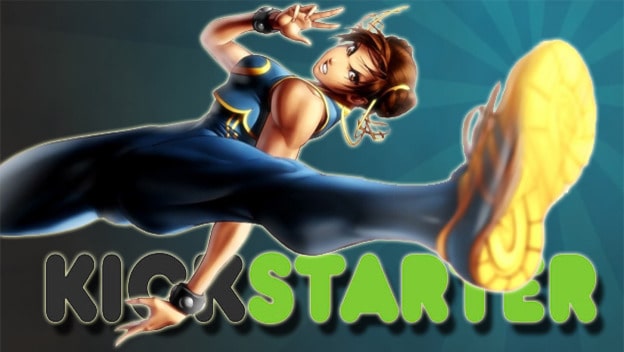Now this is truly what I call ”POWER TO THE PEOPLE!”
A few months back, I watched a great little documentary called Indie Game: The Movie . It follows the ups and down, trials and tribulations of independent game designers and their attempt at working almost around the clock in order to get their little start up projects off the ground. It reminded me that there is a whole world out there beyond the major $100 million dollar studios that usually bring us our big budget releases. Now, a great new community has risen up and provided a new avenue for the truly creative, unsung heroes of the indie scene. A helping hand they need in order to bring their vision to the masses. A vision that would have otherwise gone unseen and undeveloped.
All of this thanks to Kickstarter.
The crowd-funding site essentially turned e-begging into a legitimate revenue raising venture that has allowed game creators to take their ideas directly to the masses. Then, based on whether or not the people believe in the project (or more importantly, its creators), the public will either successfully fund or ignore the project. While there are a myriad of different ideas that come and go on the site virtually every day (from films, to books to tech projects), gaming is still among the most popular among individuals generous enough to donate. Clocking in at close to half a billion dollars to date, gaming has become the number one category of all donations to Kickstarter. What that says to me is, even though huge franchises like Call of Duty and Battlefield still reign supreme at retails stores, there is an element of untapped creativity that the gaming world still yearns for. Put another way, we as game consumers have been subject to whatever developers deemed worthy to put out on the market. If we happened to go through a “dry spell” of truly fun, innovative games, we had no real control over it. We just had to sit on our hands and wait for the next big thing to come along.
The concept of a crowd-funded indie scene can change all that!
The only real power us normal folks have in the game industry is the ability to vote with our dollars. No, that’s not a type-o and I didn’t mean “spend”…I mean VOTE. Think about it; the success or failure of a game is directly tied to how much money it makes. By purchasing a new game, your essentially sending 60 “yes” votes to the developer. If at the end of a quarter a game has fallen far below estimated sales projections, that game would be considered a failure (kind of like a candidate getting the news at his political headquarters that he’s lost on election night). With Kickstarter, in some small respects, it helps remove the middle man of the game industry filter. Thus giving gamers some small measure of say directly over what games and technology should be produced. A perfect example of this is the hugely popular Oculus VR technology that is burning up news feeds all over the internet. It got its funding from a Kickstarter campaign and has gone on to become one of the most talked about and anticipated pieces of gaming hardware since the launch of the next-gen consoles. The Ouya is another.

It used to be that the only way the game community could really be involved in the progression of a game creativity was through modding. Doing things within a game and pushing it beyond the boundaries of what it was originally intended for is something that the evil geniuses of the game community have been doing for years. In fact, it’s illustrates how the game industry simply can’t ignore something if it garners enough attention. It’s now commonplace for PC games (and even some select console titles) to ship with some type of mod tools to allow the community to work their magic. It’s something that the game industry recognized a demand for and started to support it. Could we be seeing the same type of renaissance here with Kickstarter? Allowing the public to guide development of indie titles may help us have more influence over the kinds of big studio releases that are crammed down our throats every year.
Think of it like an ant farm. The worker ants are the indie developers while the folks at EA and Activision are the people studying them from outside the glass.
If we’re lucky maybe, just maybe, they’ll learn something.
